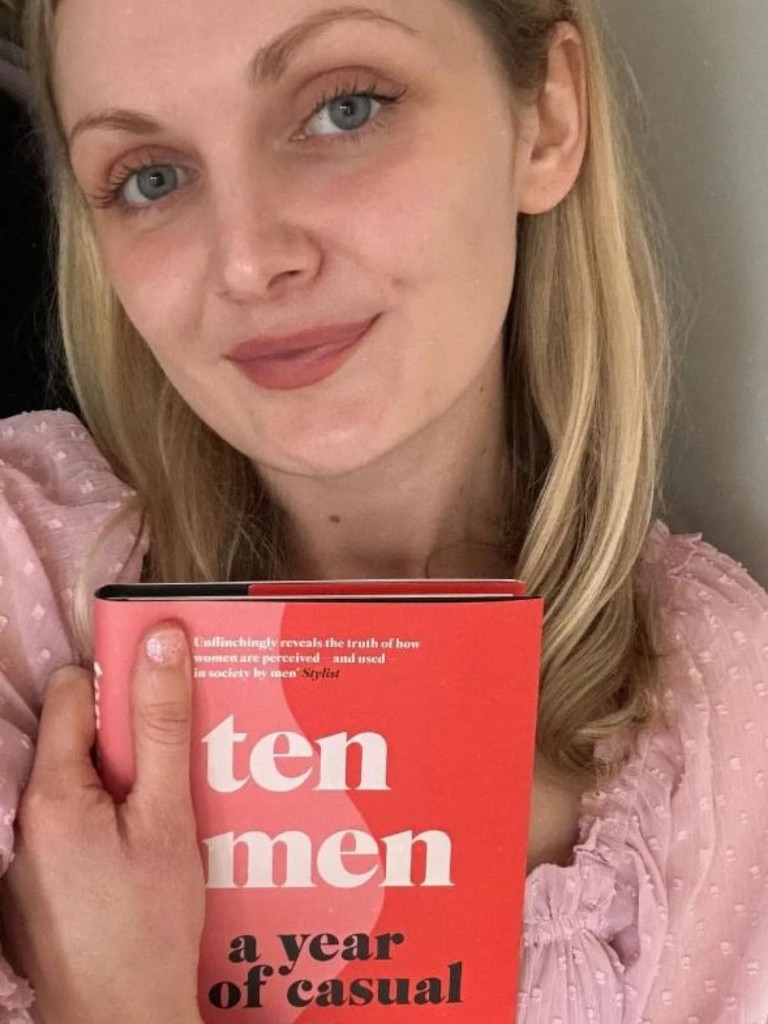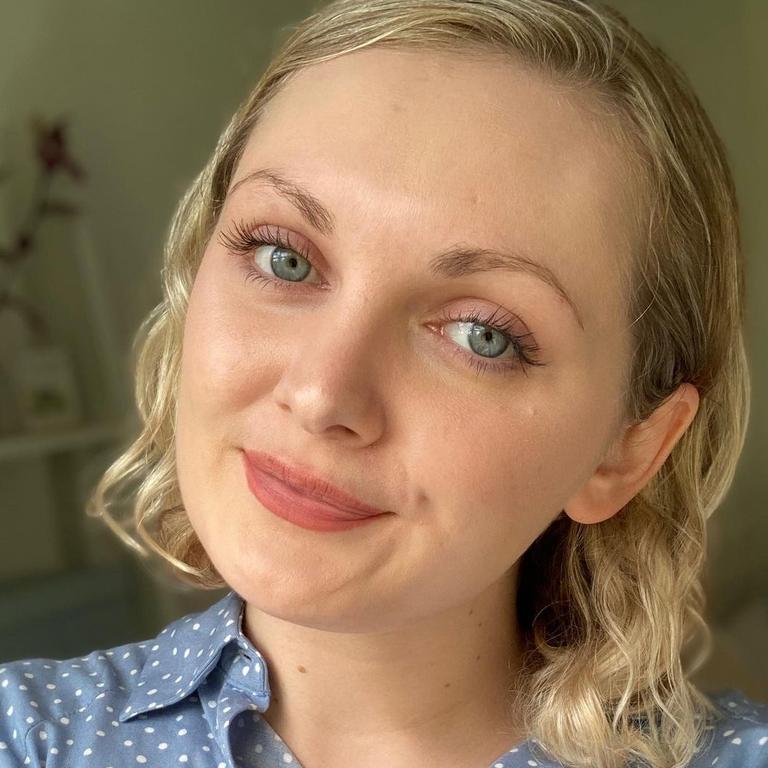‘Fear and trauma’: Horror reality of author Kitty Ruskin’s ‘year of casual sex’
A British author has shared the harrowing reality of her “year of casual sex”, writing that it left her “broken up and dishevelled”.

A British woman has spoken out about the dangers of casual sex, saying her experiences with random men often ended in assault.
Kitty Ruskin details her harrowing experiences in her newly-released book, Ten Men: A Year of Casual Sex, which she hopes will serve as a wake-up call about the realities faced by young women in an age where many males are addicted to violent pornography, The New York Post reports.
“Women are tired of shouldering all this fear and trauma,” Ruskin writes in the book, excerpted in the Daily Mail, revealing that she was raped by two different men while trying to be “liberated and fearless” in her sexual pursuits.


At the outset of 2019, when she was aged in her mid-20s, Ruskin made a resolution to “stop being so precious about who she had sex with”, believing she needed to make up for lost time after losing her virginity at 22.
“I decided to have sex with as many people as I wanted to,” she wrote, revealing she aspired to be like the empowered, promiscuous publicist Samantha Jones from Sex and The City.
“No more guilt. No more self-loathing. No more self-limitation. I was liberated and fearless. I was Samantha.”

Ruskin’s first date in 2019 was with a male model.
Although they had instant chemistry, the journalist decided to wait until after their second date to have sex with him.
She writes that she was startled when she found his bedroom contained bondage equipment “which he proceeded to use on her without prior discussion”.
Uncomfortable with the experience, Ruskin decided not to pursue anything more with the model – but her second fling with a PhD student went similarly awry.
After the first time having sex, the man attempted to convert Ruskin to “a religion he was founding”, making her feel as if she had been used.
Still, she agreed to another date, which ended with him choking her without consent.
“It probably only lasted a couple of seconds, but they felt agonisingly slow,” she painfully recalls in her book. “I couldn’t breathe, and my feet weren’t quite on the floor.”
The experience left her “fragmented and nauseous and confused”.


But Ruskin’s worst encounters were still ahead of her.
One night while out at a bar with friends, the journalist blacked out after just three drinks, making her believe one of her beverages had been spiked.
When she regained consciousness, Ruskin was in the back of a cab with a man she didn’t know.
He took her to his house and “although she was far too drunk to consent”, he “had unprotected sex with her”.
Ruskin later realised that the experience was rape.
“My mind was slow to accept that my body had been raped because of self-defence,” she writes.
“After something traumatic happens, you don’t want to acknowledge that it’s happened. You don’t feel ready to face it, or capable of admitting it.”
Still, determined to be empowered, the writer continued with her resolution.
“I liked the idea of having sex with someone who cared about me; someone who had regard for my feelings,” she writes in the book, saying she perused dating apps in the hopes of meeting more serious suitors.
“Perhaps sex within a relationship would leave me feeling more satisfied, more empowered.”
That was not to be the case.

After going home with another man she met on one app, Ruskin said he aggressively forced her to have sex without a condom, despite her insistence that he wear protection – an act known as stealthing.
“He didn’t stop,” Ruskin writes, saying the second rape in one year brought “an almost unbearable weight of grief”.
Elsewhere in the book, Ruskin revealed that she was both “ghosted” and “love bombed” by different men, leaving her confused and ill at ease.
She was later diagnosed with anxiety and post-traumatic stress disorder.
Ultimately, Ruskin’s year of sexual liberation left her “broken up and dishevelled … convinced that violence was synonymous with sex”.
She decided to go public with her story to highlight how common sexual violence is for young women, and hopes her experiences will help spark change.
“Men: let’s take the problem of rape culture off the back burner,” Ruskin writes.
“Let’s pull it down from the shelf and look at it, even though doing so might make you feel uncomfortable. Guilty, even.
“It may make you feel uneasy, but women are tired of shouldering all this fear and trauma.”
This article originally appeared on The New York Post and was reproduced with permission





